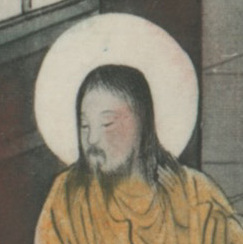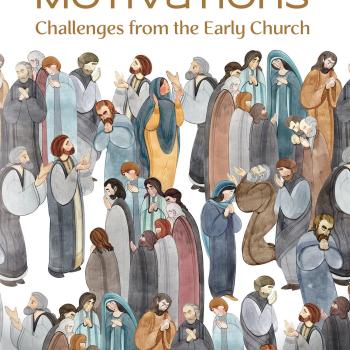My previous post, examined the story of the rich, younger ruler (Mark 10:17–30). I suggested that Jesus shifts our focus from “what” to “who.” If this is correct, then what does this mean for gospel preaching?
“Who” is our hope
 The reason why people “do works” is not merely because they want to “earn salvation.” Rather, they just want to be accepted. For many, “salvation” (as Christians talk about it) has never entered their mind. Therefore, they settle for social substitutes: if they have this or that relationship, if they are accepted into this or that group, then all will be well.
The reason why people “do works” is not merely because they want to “earn salvation.” Rather, they just want to be accepted. For many, “salvation” (as Christians talk about it) has never entered their mind. Therefore, they settle for social substitutes: if they have this or that relationship, if they are accepted into this or that group, then all will be well.
In short, what people do is largely determined by who they want to be. Therefore, certain “works” will gain them acceptance by those with whom they want relationship.
I have written on this before in a post called “Legalism is an Honor Shame Problem.”
Instead of challenging people about their wrong assumptions about how to be saved, perhaps we need to question who is it they want to please.
How Jesus Preaches to Chinese People
First, he makes clear that having “eternal life” has significant moral thus communal implications for the present life. For example, one has to rethink his or her view of money.
‘ . . . go, sell all that you have and give to the poor, and you will have treasure in heaven; and come, follow me.’ 22 Disheartened by the saying, he went away sorrowful, for he had great possessions. 23 And Jesus looked around and said to his disciples, ‘How difficult it will be for those who have wealth to enter the kingdom of God!’ 24 And the disciples were amazed at his words. But Jesus said to them again, ‘Children, how difficult it is to enter the kingdom of God! 25 It is easier for a camel to go through the eye of a needle than for a rich person to enter the kingdom of God’” (Mark 10:21–25).
Second, Jesus focuses on guanxi (relationship). At the climax of the narrative, Jesus makes a promise,
Truly, I say to you, there is no one who has left house or brothers or sisters or mother or father or children or lands, for my sake and for the gospel, who will not receive a hundredfold now in this time, houses and brothers and sisters and mothers and children and lands, with persecutions, and in the age to come eternal life. But many who are first will be last, and the last first.
“Now in this time,” we will receive hundredfold in “houses and brothers and sisters and mothers and children and lands.” I don’t know if I have ever heard someone preach on this specific point. It is probably because people are afraid of preaching a “Prosperity Gospel.” Yet, Jesus says it. So should we.
How is it so? At conversion, we enter into our true human family—those whom God redeems from every nation. We can go anywhere in the world and find family. As family members, their house is our home. Our things are theirs. What an encouragement to become a Christian! This is straight from the lips of Jesus himself.
Jesus uses our human love for guanxi to draw people to himself.
Third, Jesus’ gospel does not hide the fact that we will lose face, fortune, and family.
A Christian must “leave” his or her birth family (in the sense of exchanging fundamental loyalties). Gaining our new and true family will mean facing “persecutions.” In order for the rich ruler to embrace Christ, he must accept a new perspective of honor and shame (i.e. face): “many who are first will be last, and the last first.”
We are not simply asking people to forsake their families. We are asking them to gain their true human family—a much larger family! Rather than losing face and guanxi, they are gaining them.
Chinese Answers to Western Questions
What do we learn from Jesus’ exchange with the rich, young ruler?
1. People lack relationships not simply works.
Jesus answers in a very Chinese way. For Chinese people in general, their most pressing concern is not “what they should do to be saved”. Rather than worrying about accumulating “good works”, they want to accumulate relationships. People use relationships to secure jobs, opportunity, face, etc. Chinese are pragmatic people.
Being a Christian is about relationship, not mere rule keeping. Salvation comes freely by grace and is gained neither by works nor the important connections one has (business contacts, some rich uncle, etc.). We are saved by having a relationship with Christ. We are saved for relationship with God and his people, who come from every nation.
2. People lack perspective on our present salvation.
We cannot assume our listeners even want to be “saved.” Most Chinese have little time for what they see as abstract speculation about the afterlife. While we can never belittle the importance of the coming age, we have to show how our salvation influences the here and now. Jesus’ view of salvation extends to this life, not simply to some far off future.
In a coming post, I will explain how theology from the West influences the way we do evangelism in the East.
Photo Credit: commons.wikimedia
Related articles
- Chinese Evangelism: Telling Only Half the Story? (www.patheos.com/blogs/jacksonwu)

















